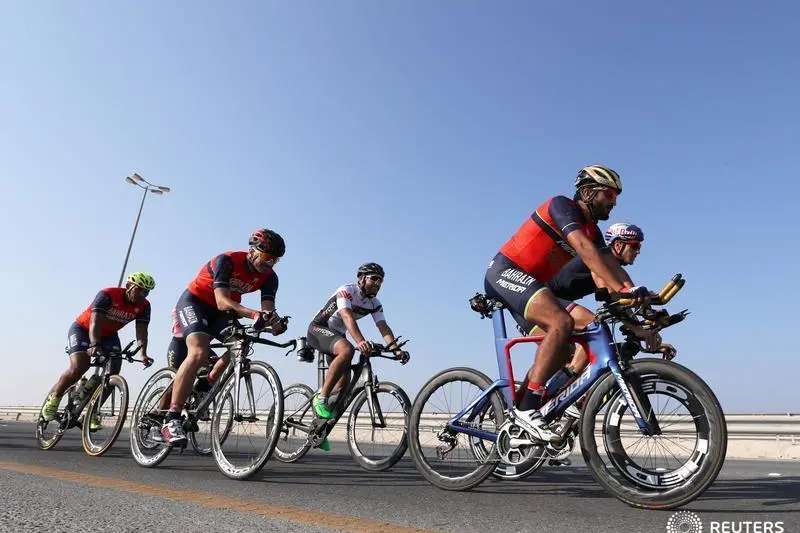PHOTO
Dubai's Roads and Transport Authority (RTA) is set to expand the total length of cycling lanes in the emirate to 850 km by 2030 from 316 km this year, and only 10 km in 2006.
The RTA has strategic plans to make Dubai one of the best cities in providing cycling lanes and supporting non-mechanical mobility means, remarked Mona Al Osaimi, the director of strategic planning.
She was speaking at one of the sessions focused on integrated strategic transportation plans during the Mena Transport Congress and Exhibition being held in Dubai.
Al Osaimi gave an elaborate explanation of the improvement of mobility operations in Dubai, especially through public transport which had witnessed a quantum shift over the past years.
Al Osaimi said the RTA had a plan for supporting walking mobility in Dubai based on six key pillars: development of modern cities, caring for pedestrian services, developing legislation for using private vehicles, paying attention to cycling lanes, supporting public transport mobility, and improving the benefits relating outlets, pavements on streets of the emirate.
Accordingly, the public transport riders in Dubai had soared to 551.7 m riders in 2017, she stated in the session entitled Mobility through Walking and Non-Mechanical Means.
Besides Al Osaimi, the others who took part in the session included Christian Brink, Director of Business Development, Next Bike Company, and Antony Reynaldi, Business Development Manager in PBSC, and Nasma Hannawi, Researcher in London University College.
In his address, Brink focused on making bicycles in megacities a means of entertainment and mobility as well.
He pointed out that his company had served in five projects in Saudi Arabia, Lebanon, and Turkey and contributed significantly to improving the bicycle sharing system which has become common in several global cities.
"They were seeking to support the concerned government departments to adopt non-mechanical mobility systems through providing a proper environment for encouraging people to use cycling," he noted.
Reynaldi said he was impressed with the steps taken by the Dubai government, adding that the strategic plans of the emirate had set a good model for the huge improvements in the Middle East to emulate.
He stressed the importance of walking and cycling, citing medical statistics revealing that cyclists were 6 per cent healthier.
Antony pointed out soaring temperature would not be an obstacle for the use of bicycles in summer as "frost doesn’t stop the people of Montreal, Canada from cycling."
Hannawi concluded the session by calling on government departments to address the means of public transport and cycling lanes when making plans for cities and mega residential districts.
She called on GCC countries to encourage the use of public transport and cycling, rather than the semi-total reliance on private vehicles.-TradeArabia News Service
© Copyright 2014 www.tradearabia.com
Copyright 2018 Al Hilal Publishing and Marketing Group Provided by SyndiGate Media Inc. (Syndigate.info).





















